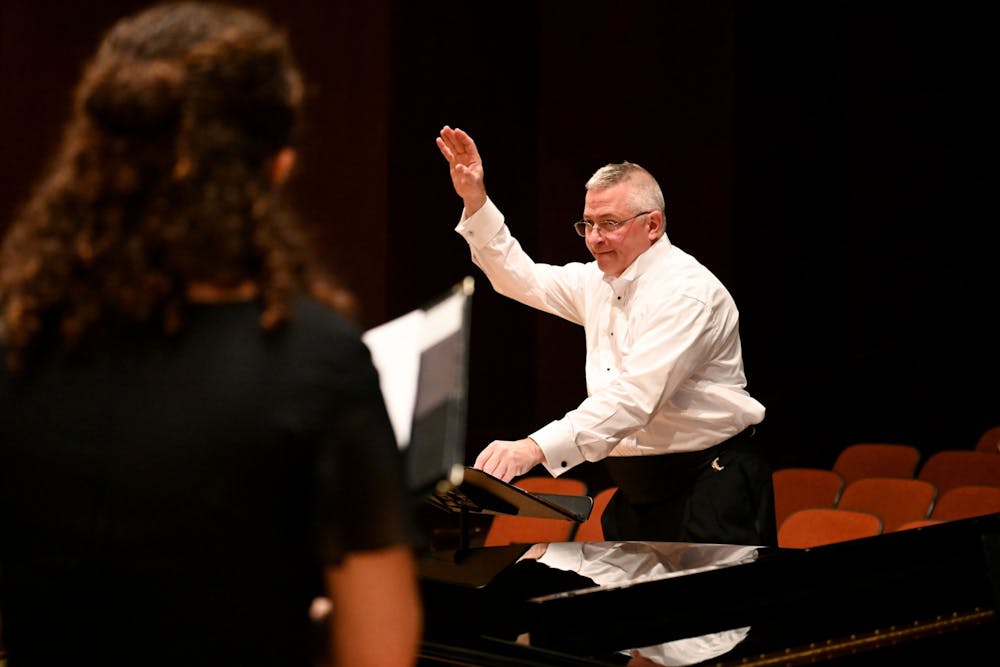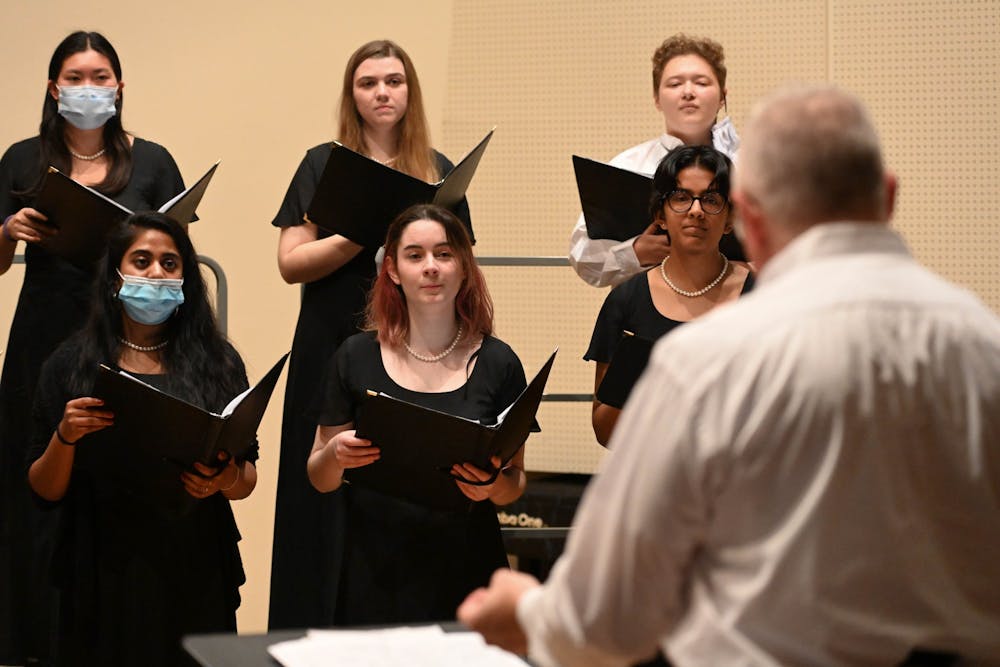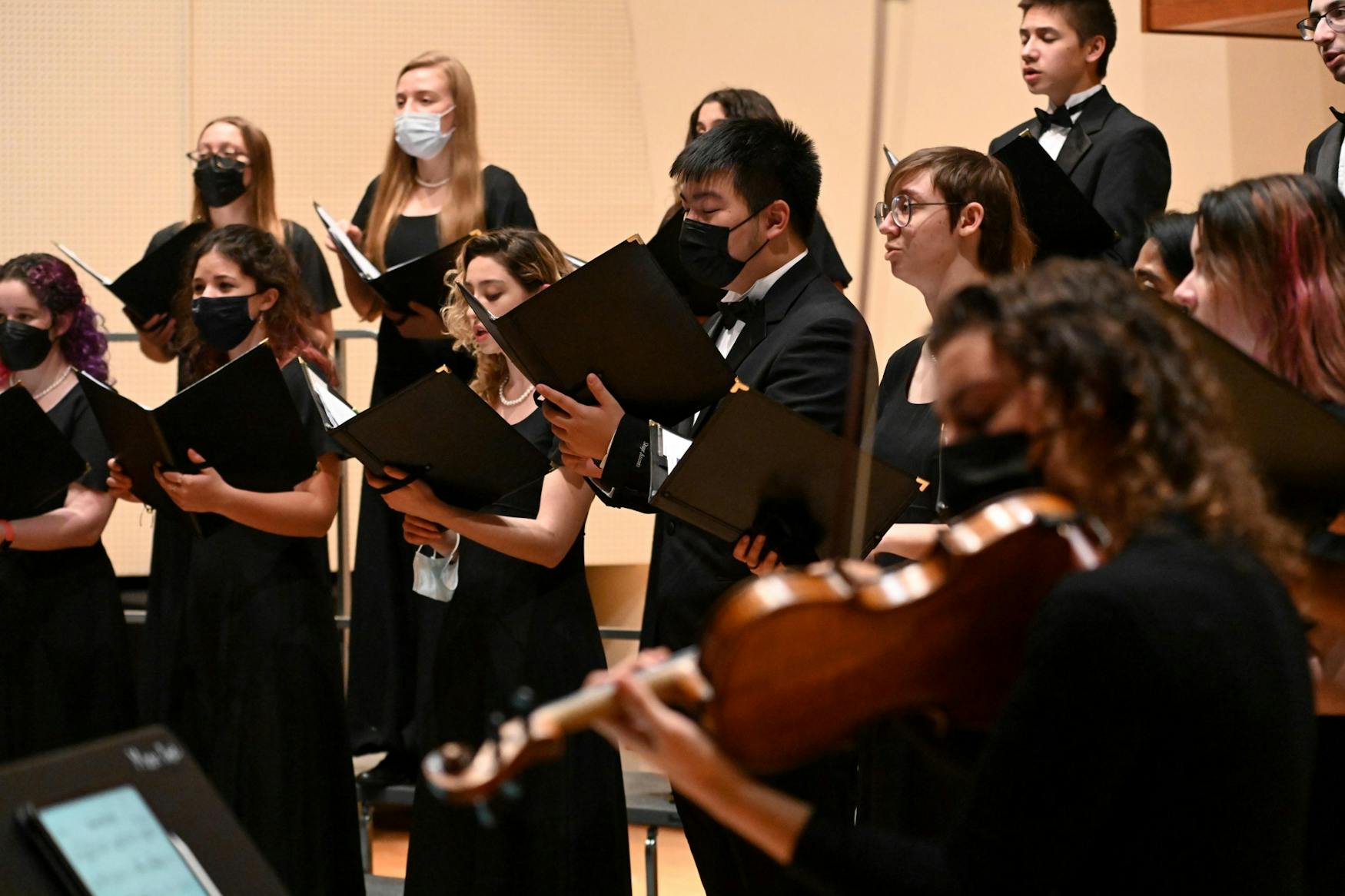From Zoom to the choir room
The Justice spoke to Chamber Singers member Alyssa Knudsen ’24 about how the pandemic has impacted the choir.
Since the start of the COVID-19 pandemic in the U.S. and the complete shutdown that followed, universities and their students have been forced to continuously adapt to a non-stop string of changes. Clubs and extracurriculars were hit especially hard and many were forced to find new ways to participate in their old activities. For choirs, it has been particularly difficult, as Alyssa Knudsen ’24 explained to the Justice over Zoom on Nov. 13.
Knudsen is a member of the Brandeis Chamber Singers, one of the University’s two official choirs. This is her second year as a member, and it’s an especially exciting one — this year, they’re fully in-person. Last year, however, the situation was very different: some students were on campus, including Knudsen, but rehearsals were hybrid. While being able to meet in-person was better than not doing so at all, there were still drawbacks. “We would meet twice a week. One day we would meet in person and we were not allowed to sing,” Knudsen explained. In person, they would study music theory, hear from guest speakers and learn about the composers of the pieces they were looking at.
In order to see each other’s faces, the virtual rehearsals took place simultaneously over Zoom and a software called Jamulus. “In theory, [Jamulus] was supposed to allow us to sing together and hear each other without much lag,” Knudsen said. The software, however, never really worked, making an already difficult situation increasingly frustrating. “All of us had a really horrible experience with it,” Knudsen added.
Performances also had to be modified to adhere to COVID-19 restrictions. Prior to the pandemic, the choir would hold concerts in-person, but like everything else, that had to change. Last year, each student would record their part individually and then all the parts would be edited together to create one recording. “It wasn’t really a concert,” Knudsen said, “But there’s a video floating around out there somewhere of a bunch of floating heads singing in their own rooms.” In the spring 2021 semester, the choir did have an in-person performance, but it was, as Knudsen described it, “bizarre.” Each student recorded a video of themselves singing the University’s alma mater. Then, near the end of the semester, the choir gathered in the gym wearing masks and socially distanced while lip-syncing to their recording of the alma mater.

Although the choir is slowly returning to normal, the difficulties of the previous year are not easily forgotten. “It was the feeling that I got when I sang with people [that was lost], and that’s kind of indescribable,” said Knudsen. She explained that you cannot connect to people or make music when you’re “by yourself in a nine-by-nine [foot] concrete-walled dorm.” The frustrations with faulty technology and the feeling of isolation both contributed to a rough year for the choir, and it was not an experience that she would like to repeat. “It was a complete shift in my mindset, which was, ‘I’m not actually enjoying anything; I’m just trying to get through it,’” she said.
One moment from last year that stood out to Knudsen was when she accidentally dropped her computer during her first semester. “Everything was fine, except it fell on the corner where the audio jack was, so I couldn’t plug in my headphones,” she explained. Because this happened when the choir was still rehearsing over Jamulus, it made things increasingly difficult as headphones are required for the program to work. Her computer had to be fixed and none of the rental computers had Jamulus installed, so Knudsen missed out on a couple weeks of the virtual rehearsals. “[The rehearsals] were objectively horrible — kind of painful and not really fun — but [missing them] just made me so sad,” she said. “I couldn’t even do the bare minimum that I was allowed to do.”
Choirs depend on being able to sing together as a group and when the pandemic got in the way of that, they struggled like many other disciplines did. “All art is a form of communication, a form of connection and a bond that you experience with something beyond yourself,” Knudsen explained. Not being able to take part in that communication was frustrating and disheartening. Now that the University is mostly in-person, things have begun to turn around and the arts are beginning to recover.
The Brandeis Chamber Singers no longer have to put up with faulty software and technological issues. The University’s policies say that if the members are fully vaccinated and within testing compliance, they can meet in-person, maskless, to sing. They are also performing: their first concert of the year — a joint performance with the University Chorus, the University’s other main ensemble — took place on Sunday, Nov. 14. They are also planning a holiday concert before winter break, and at the end of June the Chamber Singers will be touring in France, including locations in Paris and Normandy.

Knudsen explained that it was jarring when music, which in the past “has been the thing that brings [people] together,” became something dangerous. “The arts are supposed to be that one thing that nobody can take away from you and that’s supposed to comfort you when you’re suffering,” Knudsen said. The pandemic changed all of that and now that the choir is singing together once more, they aren’t about to take it for granted. Knudsen in particular is thrilled about being able to resume singing in-person. “Now that we’re allowed to sing together again, there’s a renewed appreciation for just how precious music is,” she said. The Chamber Singers are currently focusing on compositions that were written during the shut down, as well as memorial pieces in honor of those who lost their lives and “metacognitions about the importance of music.”
Knudsen is optimistic that the arts will be able to recover from the many struggles brought on by COVID-19. She acknowledges that others may see it differently, but among her and her fellow Chamber Singers, there is a consensus: nothing has been permanently lost.

Editor’s note: Editor Jack Yuanwei Cheng is a member of the University Chamber Singers and did not contribute to the writing or editing of this article.



Please note All comments are eligible for publication in The Justice.